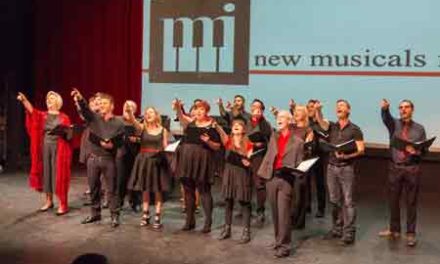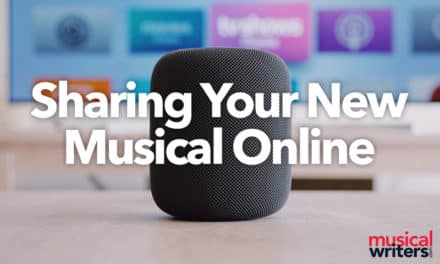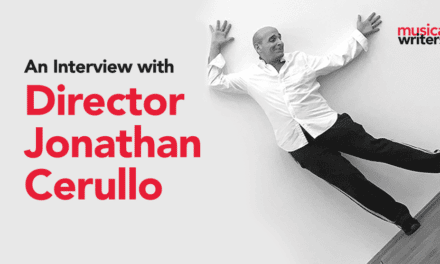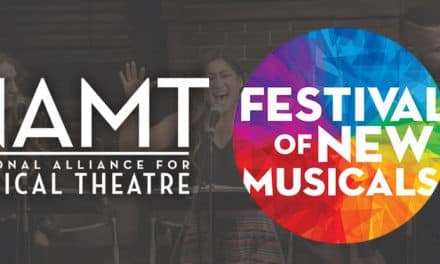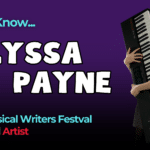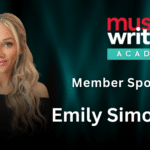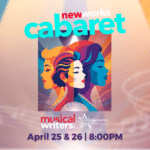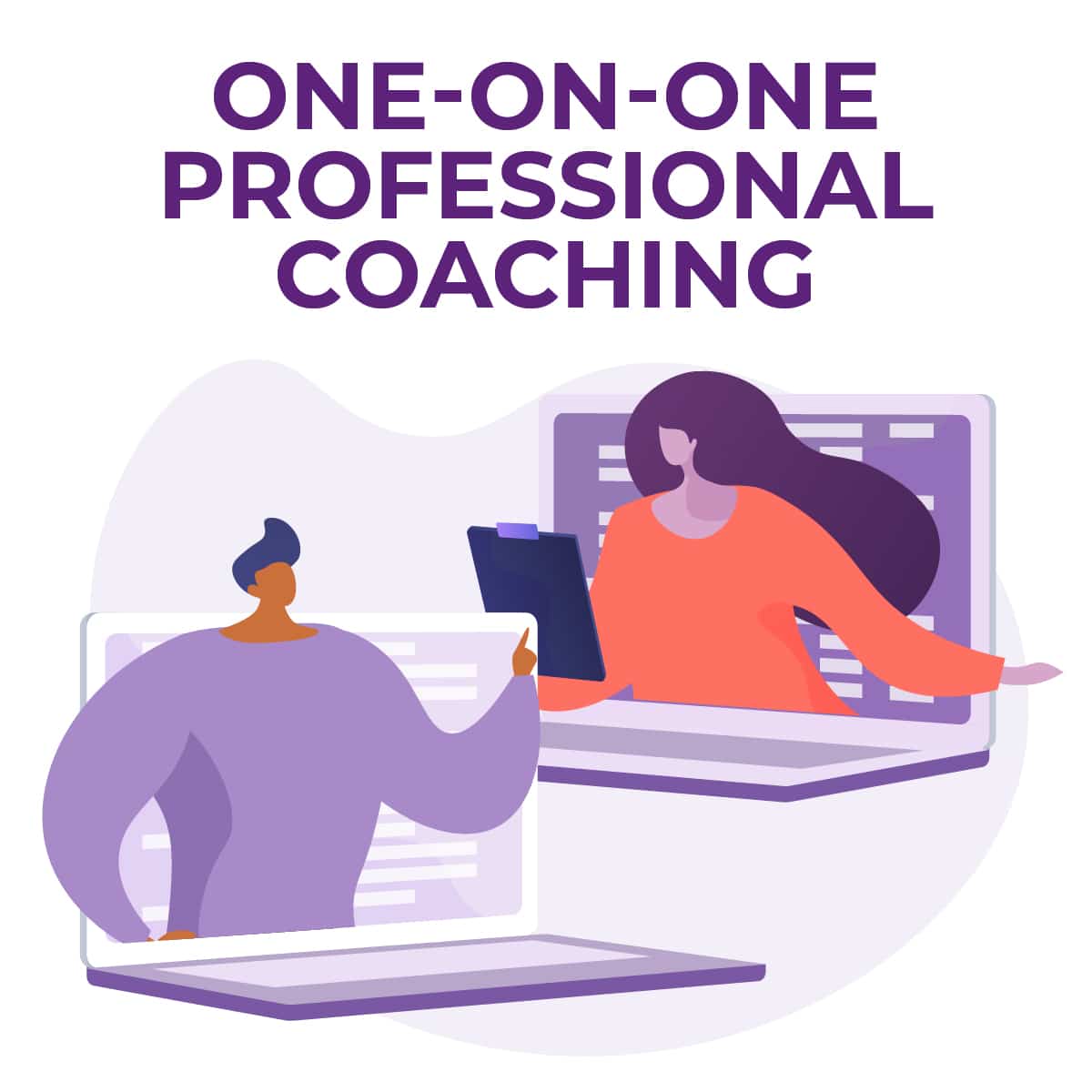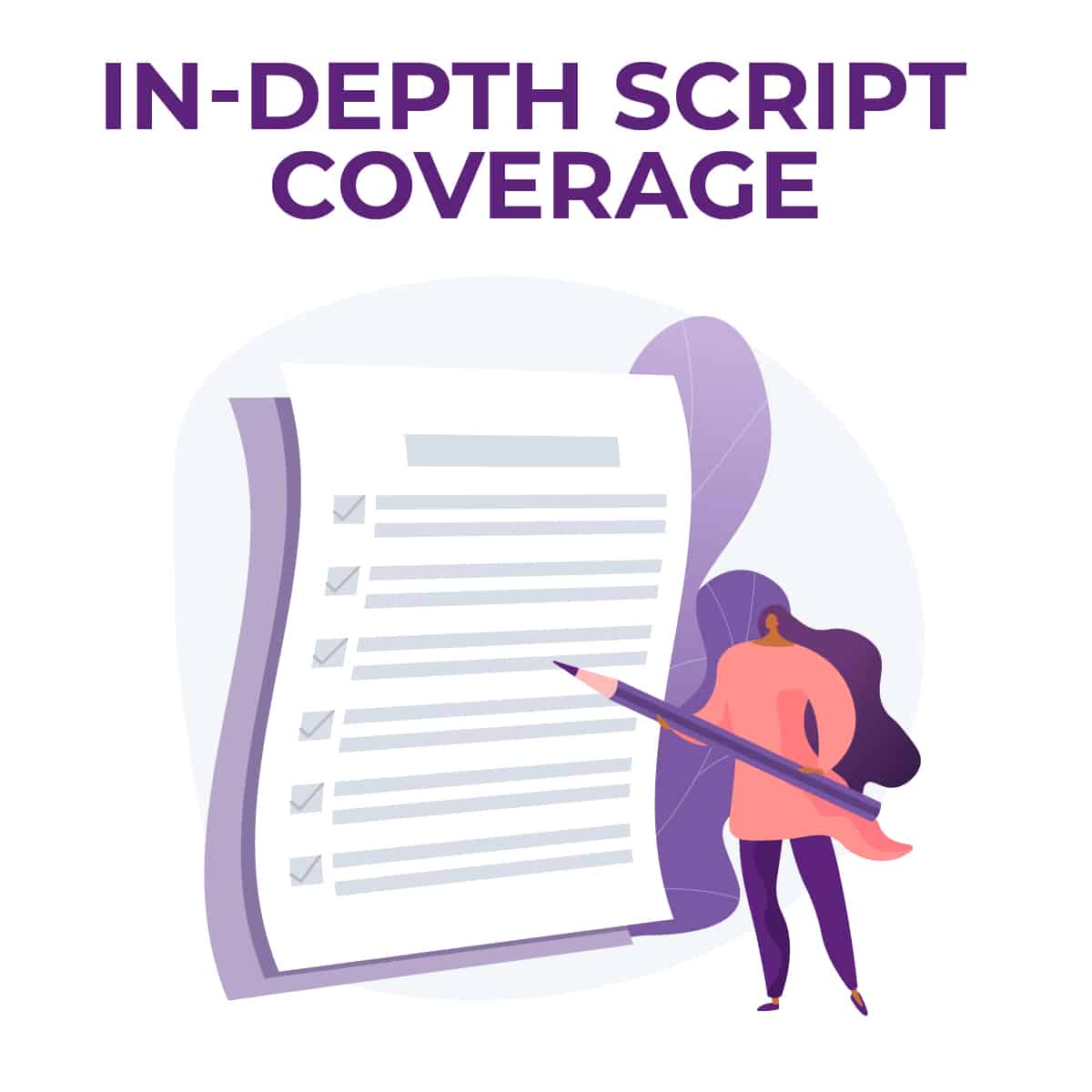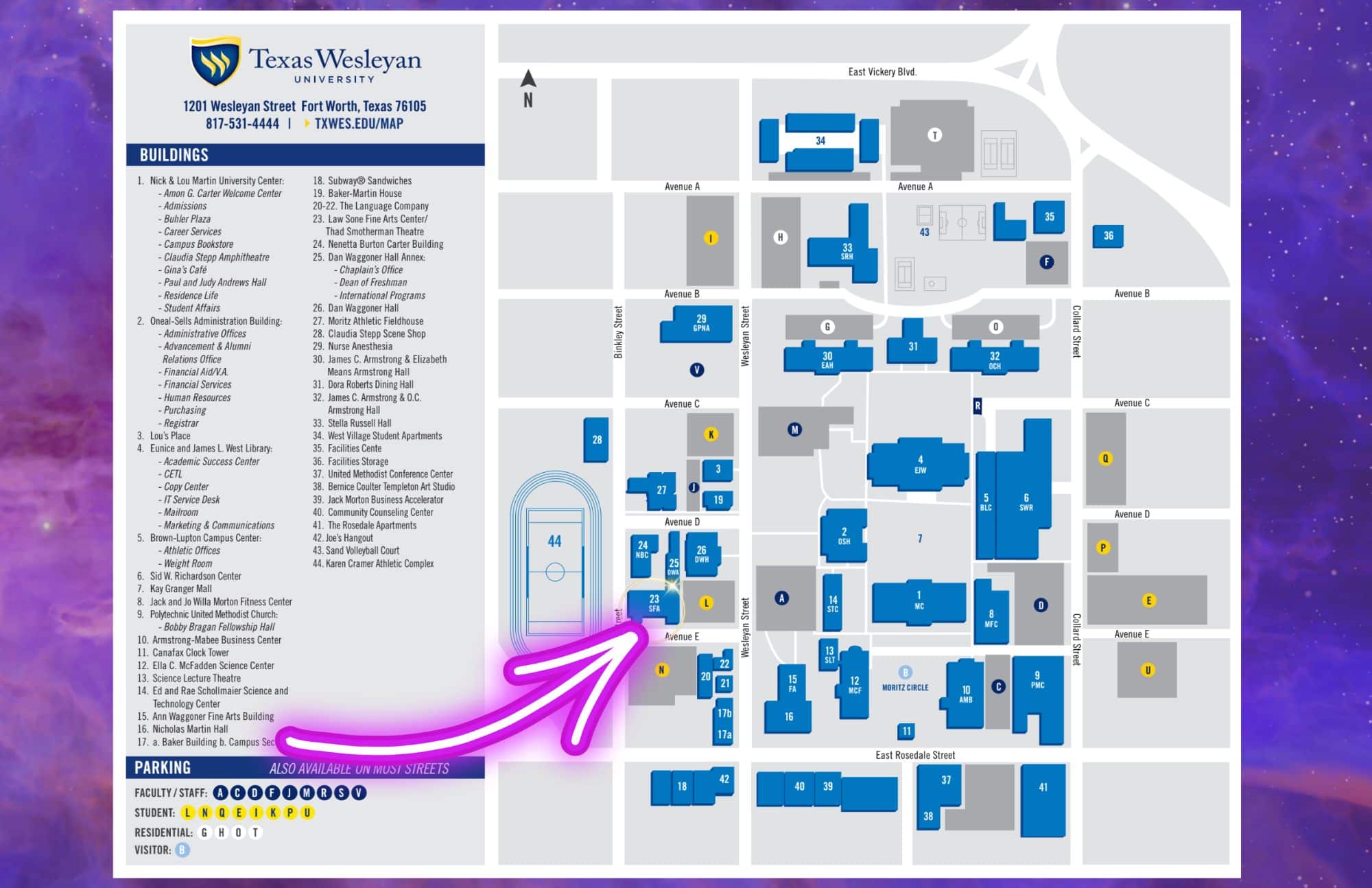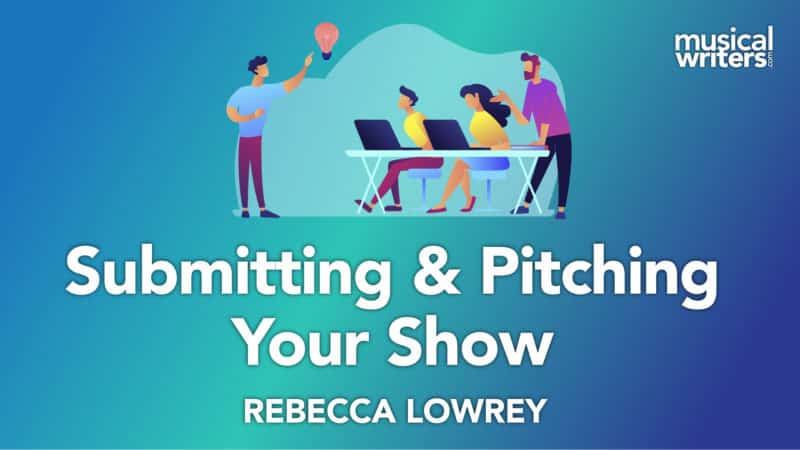
We are so excited to be providing free readings for members of our MusicalWriters Academy community. When submitting and pitching your show to the Academy Reading Series, (and other opportunities as well) keep these things in mind:
Note: The following was transcribed from a conversation I had with the MW Academy members and has been edited for clarity. Academy members can view the recorded video in its entirety here.
Is my show ready for a reading?
Here are a few things to consider before you submit…
Can you succinctly explain what your show is about?
The first sign of being ready for a reading is to have an elevator pitch—both a written pitch as well as a spoken pitch. If you cannot succinctly put into words what your show is about within 30 to 60 seconds, you’re not ready for a reading. You might have pages and pages of music, you might have script and score, you might have all of these ideas, you might even have vision boards for costumes and sets and lighting and everything—but if you can’t quickly and succinctly tell me what your show is about, you’re not ready.
What are the cast needs of the show?
What are the cast requirements? Do you have character descriptions? That is the first thing we need when looking at whether we can make this happen or not. If you are creating the next Les Mis with 45 cast members and they all have different tracks and solo lines, that’s probably not going to be easily produced.
Make sure that you have clear expectations of the cast and character requirements of your show. I would also encourage you to break stereotypes and leave characters some room to be open to all genders, ethnicities, sizes, vocal types, ages, etc. Casting can be difficult with shows that have very specific needs. If your show requires a 78-year-old Asian American man who can tap dance and is a high, high tenor, that’s going to be hard to cast.
Do you have a clear script and piano/vocal score?
To have a successful reading, we need a correctly formatted script and a complete piano/vocal score. Also, if you can add the guitar chords to your piano/vocal, it gives the pianist and band a little bit more flexibility.
If you want to be my best friend and my actor’s best friend, the best, most wonderful thing that you could ever do for us is provide a merged script and score. One of the most difficult things for a reading is having a separate script and a score. When you are doing a show that’s not memorized, you’re constantly having to flip back and forth between those two. If it is merged into one document, that makes things immensely easier. It makes rehearsals easier, changes easier, underscoring easier. If you’re like, “Rebecca, there’s absolutely no universe in which I can merge my script and score”, I get it, it involves technology and sometimes that’s hard. (We do have some folks who can help with that, email development@musicalwriters.com for recs.) At the very minimum, any lines that are supposed to be spoken during a song should be included at the correct spots in the piano/vocal.
Academy Reading Series – The Actual Readings
Here are a few common questions we’ve answered about our Academy Reading Series specifically.
Are actors on or off book?
I don’t require our actors to be off book for the script, but I do encourage all my soloists to be off book on their songs. The only exception is with patter songs—songs that are super wordy—that’s a lot to ask. Obviously, when solos are memorized, I get better vocals. Actors also connect with the audience so much better.
We do it all with music stands, but this is not your boring stand-at-a-stand, stoic type of performance. We use these music stands as set pieces and props. I had one scene where an actor was supposed to leave the room in a rush and they slammed their music stand down and went back to their chair and let me tell you, that was more powerful than them leaving the stage and shutting a door behind them.
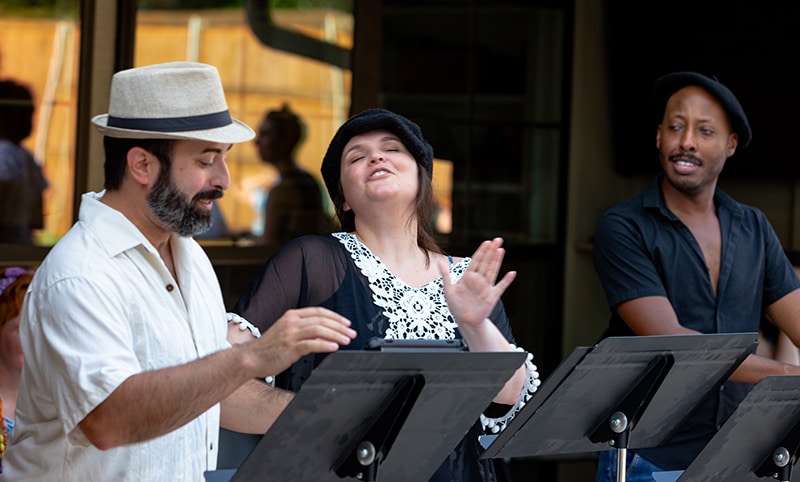
Academy Reading Series presents “Bucket of Blood: The Original Beatnik Musical” in June 2021.
What about instrumentation?
For the most part, the instrumentation for our readings is piano-only. We’ve had some where acoustic guitar has been a really important part, so we made that happen. If you had a show with a very meaningful and essential cello line, we would do everything in our power to find a cello player. We typically avoid full-out percussion, electronic instruments, trumpets and things like that because they’re almost impossible to sing over. Again, we would have to look at those things to see what’s going to work.
What is the writer’s involvement?
The process for the writer’s involvement is really up to you. I want the writers to be involved as much as they are comfortable. I definitely want them to come see the performance if possible, but I don’t encourage the writer to be at every rehearsal. However, I do need writers who are going to be available and responsive to my questions about their show. Otherwise, I have to answer those questions the way I see fit. I may need to know, “Did you really mean for this song to be sung up the octave? If Mrs. Jones is going to have a little operatic soprano moment, awesome—we’ll do that, but might it have just been a typo?” I need people who are going to interact with me about the simple things (such as inaccuracies between the scripts and the score), as well as have conversations about the tougher things (like “can we change the language of this sentence because it’s unnecessarily offensive?”). We need to be able to have those conversations for us to both be happy with what that final product looks like.
Right now we are based in Dallas/Fort Worth, where we can provide the entirety of the reading for free. We have access to rehearsal space, performance space, actors and musicians. We can go to other locations, but then things start to cost money. If you have the ability to help offset costs, we can certainly put up a reading in New York or somewhere closer to the writer’s home.
What kinds of feedback do you provide?
The final thing that we offer you with these readings is feedback from the producer, cast and audience. That is my favorite part, and we can do that in whatever format that you’re comfortable with. I understand how difficult that part of this process is. These are your babies, and sometimes it’s tough to take that constructive criticism.
As the producer, I want to be able to say, “This is how it worked for the stage reading, but if I was doing this show in real life, fully realized, this is where my roadblocks would be.”
We also will give cast feedback, such as how they felt playing those characters, what worked, what didn’t work for them, what parts were really difficult to get into their voice, what parts of their character were really difficult to realize, or what even what dialogue or lyrics didn’t feel right or didn’t roll off the tongue.
And the best feedback is the audience feedback. Doing these shows so intimately in a small space allows the actors to both hear the audience laugh and cry and feel them laugh and cry. They can feel the reactions to your work, and that is the best feedback that we can get.
Do you record the readings?
While the readings are recorded, it’s sometimes difficult for the outdoor ones to result in a super clear, professional recording. We use a Zoom Q8 and it’s a really high quality audio and video recording. If we are planning an outside reading, we’ll also record the last indoor run-through as a back-up.
Do local producers come?
Yes, we do invite local producers. I have great relationships with theater owners, artistic directors, and producers. Depending on where you are in your development, if that is something you’re looking for, we definitely can provide that. We know the difficulty of getting a new musical into an existing theater season. Theater owners can read scripts all day long, but often it’s difficult for them to just look at a script and music and visualize what can be done with it. At our readings, I have had so many people say, “Oh my gosh, that would be so cool in our space!” because it gives them the ability to not only hear the show on live voices, but we also leave so much to the imagination that it allows them to put their producer/creative mind into it. A good description (that my mom said!) about our performances is that they are kind of like a radio show but in person, because there is so much imagination involved.
Can you use my tracks?
No, we don’t use tracks, because it makes everything so confined, especially for underscoring and dance breaks. More often than not the music doesn’t line up because we’re not walking across the stage and we’re not doing costume changes or choreography. Also, it’s helpful to work from the piano/vocal so we have flexibility with the song keys.
Is underscoring or transitional parts usually included in a reading?
Underscoring yes, transitional not so much. A lot of times I find myself only playing the first couple of measures of any written transitional parts because we don’t need it. There’s not a scene change, there’s no sets moving, it’s literally just people walking from chair to stand. But underscoring, I love. I think that underscoring sets the scene so much. It makes emotional moments more emotional.
What about the length of the show?
The show length doesn’t really matter as long as it’s interesting and captivating. We can do the typical full length with an intermission. And I also love short musicals. I do think that 1:15-1:30 with no intermission is really good. I will say, though, that a lot of producers really like intermissions because they make a lot of money at intermission! Intermissions can definitely be used as a part of the story, such as for creating a cliffhanger.
Do you need demo tracks of each song?
I don’t need demo tracks as long as I have a fully realized piano/vocal score. At 11 o’clock on a Tuesday night, I’ll perform the whole show in my living room by myself. I put two iPads up—a script on one and the score on the other—and go through and play it all. It also helps me see if what’s on the page translates to what the writer has envisioned, and not depending on learning or understanding the songs by rote. However, if you need demo tracks made for pitching the show later, you’ll have a whole cast of people who’ve already learned your music who would love to sing those for you!
Wrap Up
Know why you wrote your show.
One thing I want to leave you with is this: What do you really want and need to write? We all have heard stories about why famous songs or hymns or shows were written, and I think that that’s really important. As you’re building a community and a following around these shows, know your why. Why did you need to write this show? Why did you need to tell this story? Why did you need to put this with music? When submitting and pitching your show, these are important points to make.
Essentials for Submission
Here is what I’m looking for in submissions and at our Pitch Nights:
- I want to have a very succinct idea of what your show is, what you’re wanting to accomplish with it, what it looks like in your head, and why you wrote it.
- Logistically, we need a piano/vocal score at the bare minimum. Ideally, an integrated script and score is best.
- For writer involvement, communication is key. Be available to answer questions and open to feedback.

